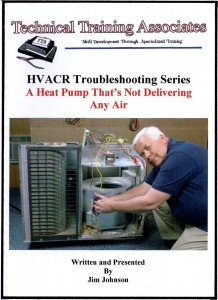Around 1940, Theresa Wahl of Wilmington, Delaware, was quietly taking on odd jobs — laundry, housekeeping and cleaning — without her husband’s knowledge.
Her husband, Horace Wahl Sr., was the owner of Wahl Heating and Metal Co., and with the effects of the Great Depression still lingering in the region, money did not come easily.
Theresa Wahl was saving up to buy her husband a surprise gift: a Lockformer Co. Pittsburgh machine, the first of its kind in an era when virtually all sheet metal work was done by hand. It joined sheet metal by mechanically making a perfect seam that ran the length of the duct.
The equipment, made to handle 20-gauge metal, was revolutionary when it was introduced in 1939, said officials with Mestek Machinery, which manufactures and sells Lockformer brand sheet metal forming equipment today.
“Prior to the invention of that machine … they made (seams) on a hand brake,” said J.R. Svehla, a service manager who has been with Mestek since 1979.
The process was slow, labor-intensive and like anything done by hand, prone to human error.
“The significance was that it was making the shape much quicker and the consistency was much better because it wasn’t relying on the skill of a craftsman’s ability to work a hand brake,” Svehla said. “You had repeatability. Every one came out the same way.”
Advertising at the time said the machine could do the work of four men with hand brakes.
A mystery
Exactly how Theresa Wahl found out about the machine isn’t known. Marketing materials would likely only have appeared in a few trade publications, including American Artisan and Snips. Perhaps Horace Wahl talked about it. Mestek officials don’t know how much the machine would have cost in 1940, but it would have represented a major investment. And with U.S. involvement in World War II looming, metal and much of the country’s manufacturing capacity would soon be turned over to government projects. There probably weren’t a lot of the machines in use yet.
Somehow, Theresa Wahl arranged to buy the machine as a gift her husband, who used it in his sheet metal shop for the next 34 years. Today, that Lockformer, likely one of the first models the company ever built, sits near the entrance to Quality Heating & Air Conditioning Co. Inc.’s Wilmington, Delaware, offices. Wahl Heating was merged into Quality in 1974.
Horace and Theresa’s son, Horace Wahl Jr., now 76 and a retired sheet metal worker, said his parents often talked about the story behind the equipment.
“My mother probably wouldn’t want people to know this but she took in laundry, cleaned offices, back in those days and she did anything to make money to buy my father that machine,” Wahl said. “It was a lot of money.”
A revelation
But for a sheet metal contractor used to knocking out ductwork by hand, it was a marvel. Seeing it in use, it practically sold itself, Wahl said.
“It’s hard to believe they used to have to try and sell that machine,” he said, adding, “I learned my trade on that machine.”
After the senior Horace Wahl closed Wahl Heating, the junior Wahl, who had been operating Quality Heating & Air Conditioning Co. Inc. since 1966, bought the Pittsburgh machine and sent it in Lockformer for refurbishment.
“The machine still runs today,” Horace Wahl Jr. said. “I believe it still has the original motor in it. That machine will run metal through it today just as well as anything.”
Hearing that doesn’t surprise Mike Bailey, Mestek’s vice president of sales and new product development.
“You give them a good cleaning and a good bath and they’re right back at it,” Bailey said, adding that such long-lived equipment can make life tough for a machinery salesman.
Rare find
For years, Mestek has had a similar model on display in its Cedar Rapids, Iowa, headquarters, but finding working units elsewhere is uncommon, said Mestek engineer David Daw.
Daw discovered the machine during a recent visit to Quality’s shop.
Because the machine’s serial numbers are missing, Mestek officials can’t be sure exactly how old it is, but they’re pretty confident it’s among the first models sold.
“That machine has got to be within the first couple years (Lockformer) was in business,” Daw said.
Despite restoring the machine in the mid-1970s, Wahl said they stopped using it on a regular basis around that time. Since 1989, the machine has been on display in Quality’s lobby with a plaque denoting its history.
“The machine has always been in the family, one might say,” said H. Adam Wahl III, Horace Wahl Jr.’s son and the current president at Quality Heating. “(It) shows our deep roots with the Lockformer name.”



















